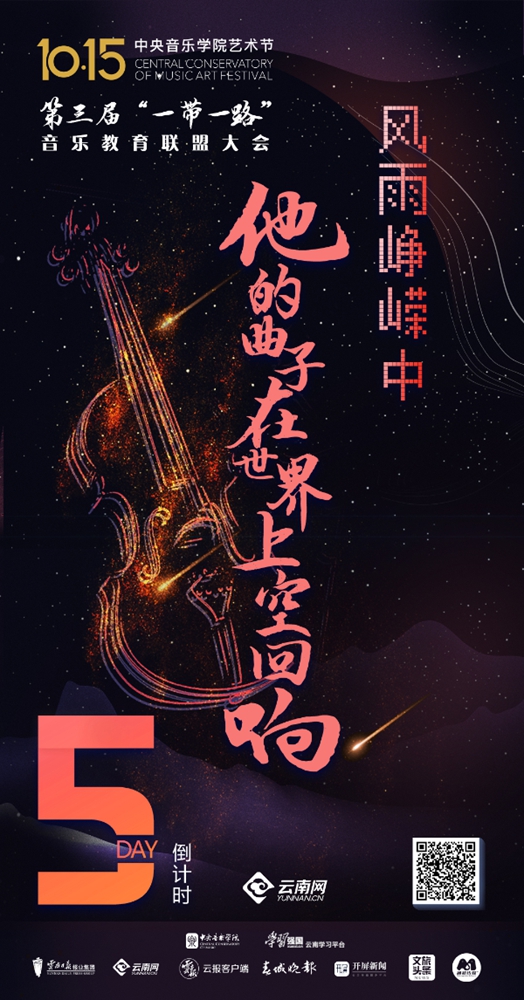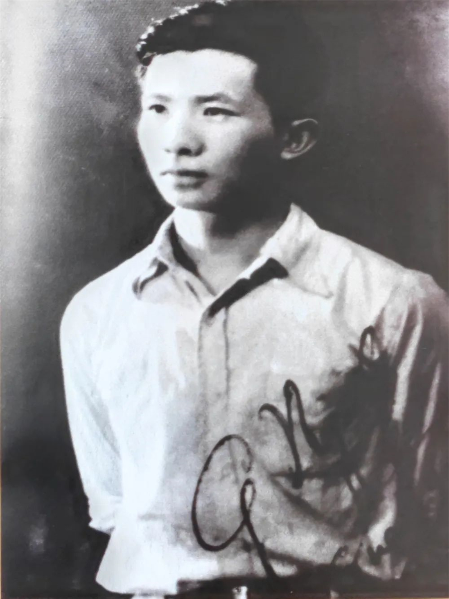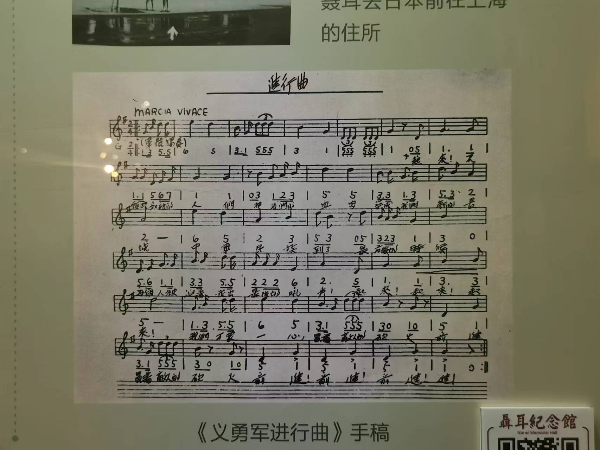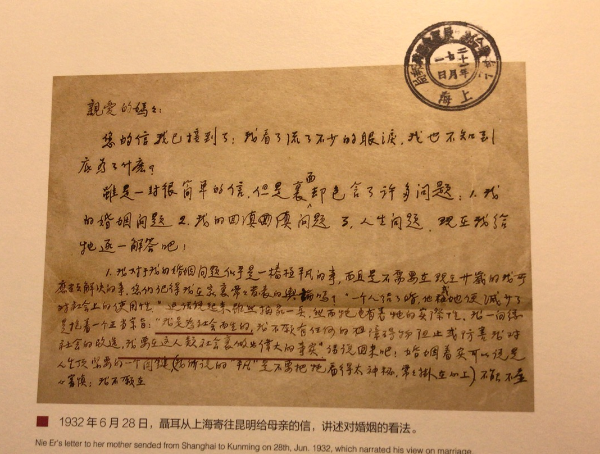Music on the Silk Road| Nie Er’s music resounds around the world

Known as the "People's Musician," Nie Er, China's first folk songwriter, was born in Kunming city, capital of Yunnan province, with his ancestral tracing back to Yuxi city. He had a deep love for singing, traditional lantern operas, and folk tunes.

Nie Er's Photo (Photo provided to Yunnan Net)
In his early years, Nie Er listened to his mother singing folk songs and telling stories, and he played musical instruments like flute and erhu while learning from neighbors and teachers.

The manuscripts of March of the Volunteers (Photo by Xuyan Rongrong)
In July 1930, Nie Er left Kunming for Shanghai to study and work. Using art for revolutionary activities, he composed numerous songs. In 1935, he composed for "March of the Volunteers”, lyrics by poet Tian Han in the same year. The song was later selected as the national anthem of China.

Nie Er's letter to his mother (Photo by Qingshan)
In 1940, the world-renowned black singer Paul Robeson performed this song in New York. The following year, Nie Er released a collection of Chinese songs called "Arise," for which Soong Ching-ling wrote the preface. On Oct. 1, 1949, March of the Volunteers was first played as the national anthem of the of China in the Tiananmen Square.
In a letter to his mother, Nie Er wrote with unwavering resolution: "Mom, I was born for the society. I aim to achieve something great in the society." He kept his promise throughout his life. His tune for March of the Volunteers has been resonating on and on in the hearts of Chinese folks.
Source: Yunnan Net; trans-editing by Wang Yunya








